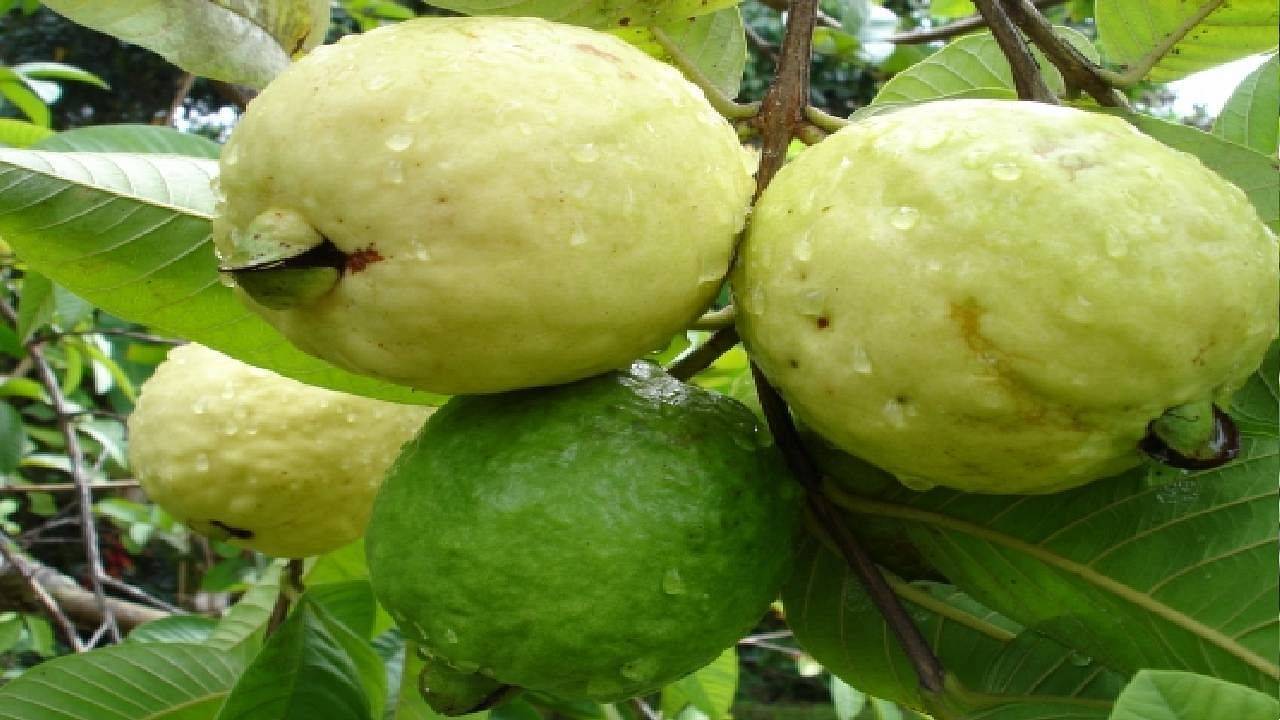
A visit to Dinesh Baggad's guava orchard in Madhya Pradesh would leave you speechless at the sight of hundreds of gigantic guavas hanging from the trees that spread out throughout the apparently endless orchard.
But, a few years ago, Dinesh's farm was not the sight to see that it is now. The farmer, from Sajod-Rajod village, used to raise chillies, tomatoes, okra, bitter gourd, and other seasonal vegetables on his 4-acre ancestral land. However, a major infestation of pests and fungi, as well as rising labour expenses, had lowered his profit margins and revenue.
"Market rates don't raise much in comparison to production costs, and modest earnings over the years make farming economically difficult," Dinesh, who earned about Rs.7 lakh through conventional farming, explains.
A Fruit Weighing 1.4 Kgs
In 2010, a friend advised he should pursue gardening and introduced him to a Thai guava variety. "The guava appeared to be enormous in the photographs and video. I also went to a neighboring state's orchard and was amazed since each fruit weighed at least 300 grams and almost grew to the size of a muskmelon," he adds.
"The variety is named as VNR-1, and I discovered that the fruit had a six-day shelf life and was less vulnerable to infection.
Because of the lengthy shelf life, even remote markets can be accessed. Because I saw it as a profitable opportunity, I decided to experiment with it," he explains.
Dinesh now has 4,000 plants in his orchard, which generates him Rs.32 lakhs per year. Around 400 farmers in Madhya Pradesh have followed his footsteps, inspired by his achievement.
"At first, I had concerns that the fruit variety had been injected with hormones or other chemicals to attain their gigantic size," Dinesh says. However, after planting a handful on my property, I obtained my first fruiting after 11 months using traditional agricultural practises. The heaviest fruit weighed 1.2 kg."
He adds that he then leased 18 acres of property with his brothers in order to grow 4,000 trees in ten years. According to him, his income has risen fivefold over the years, providing much-needed financial respite.
"I sold the fruit for Rs.40-50 a kilo and hope to produce 65 tonnes by 2021. Each fruit weighs between 400 and 1,400 grams and appeals to buyers because of its size and delicious flavour," he explains.
Dinesh claims to have been one of the first to successfully plant these guavas in the region.
He says that, while his decade-long dedication has given him success, selling the fruit has been the most difficult challenge.
Evolving Market Demands
"The trees are low-maintenance and require less attention, but it became an issue when I started selling the fruits. Many people were hesitant to buy the guava because of its enormous size, believing it would be too much to swallow a kilo in one go," he says.
Dinesh realised that entering the new horticulture sector necessitated a whole different market altogether.
"I attempted to sell my goods in 12 markets throughout India, including Bhilwara, Jaipur, Udaipur, Ahmedabad, Vadodara, Surat, Pune, Mumbai, Bengaluru, Bhopal, Delhi, and others," he says, adding that his first success came in 2016, when he sold guavas in Mumbai for Rs.185 per kilo. "I realised that buyers in Delhi and Mumbai enjoyed the fruit," he says, adding that he began targeting certain markets.
In the coming year, Dinesh intends to extend his plantation by five acres. "I want to get into food processing and create guava products, but I don't have the funds or know-how." He claims that the plantation will profit him for the next ten years.
He also wants to try out Red Diamond, a seedless guava variety. "I just learnt about it, and maybe it will be in high demand shortly." he concludes.
















